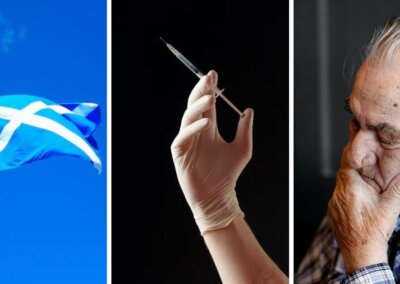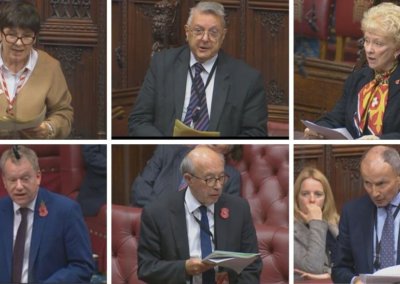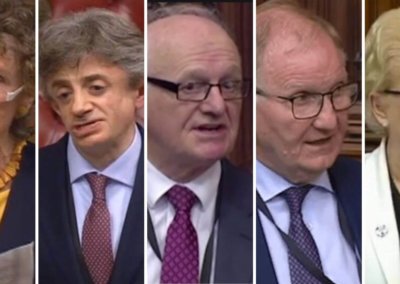The Government will hold a public consultation on guidance about the implementation of abortion buffer zones, which make “influencing” someone seeking an abortion within 150m of an abortion clinic a criminal offence.
While, Section 9 of the Public Order Act 2023, passed in both Houses of Parliament earlier this year, creates an offence for a person to “influence”, “obstruct” or “cause harassment, alarm or distress” to someone seeking an abortion outside an abortion clinic, the law has yet to be brought into force.
During oral questions at the House of Lords on the implementation of this law, the Government announced that it would be issuing guidance “to ensure that law enforcement agencies have a clear and consistent understanding around enforcement, and that abortion service providers and protesters are clear as to what is expected under the new law”.
On behalf of the Government, Lord Sharpe of Epsom said “Government will launch a public consultation on the contents of the guidance at the earliest possible opportunity, and following consultation we anticipate commencing Section 9 in the spring of 2024”.
“People are perfectly at liberty to pray wherever they wish”
In response to suggestions that the consultation was not needed, Lord Sharpe said “this is new legislation on an emotive topic, and there are strong views on all sides of the debate. Determining the appropriate balance will not always be straightforward”.
He went on to suggest a consultation on the guidance was needed because of the ambiguity in the law. He said “The guidance is not straightforward because of the broad nature of the prohibited behaviours. For example, it is a criminal offence to intentionally or recklessly influence, which means that members of the public, the police and prosecutors will benefit from being aware of what could be criminalised within the zones”.
While Lord Sharpe refused to say whether the coming consultation will differentiate between intimidation and harassment and those who silently pray outside abortion clinics, he did note that “people are perfectly at liberty to pray wherever they wish”.
Baroness Fox, who is a “long-standing pro-choice campaigner”, said that people had already been arrested for praying outside abortion clinics. “However wacky we might consider it, that is a free-speech matter”, she added.
She was also critical of the police, suggesting that the consultation will help ensure they “arrest the right people and do not end up policing easy targets instead”.
In March this year, MPs voted against an amendment that would have ensured that silent prayer and consensual communication were still permitted outside abortion clinics.
“Silent prayer, within itself, is not unlawful”
The consultation announcement comes after the former Home Secretary, Suella Braverman, reminded police in September that “silent prayer, within itself, is not unlawful”.
Braverman’s letter came just days before the First Minister of Scotland, Humza Yousaf, signalled his continued support for the introduction of buffer zones in Scotland.
“[H]olding lawful opinions”, Braverman’s letter reminds officers, “even if those opinions may offend others, is not a criminal offence”.
In the letter, Braverman quotes His Majesty’s Chief Inspector approvingly “The police […] aren’t there to champion social change or take sides. This includes a requirement to preserve all rights, including the right to free speech”.
Right To Life UK spokesperson, Catherine Robinson, said “The ongoing debate about this legislation is an indication of just how poorly thought through it is. On the one hand, as a representative of the Government, Lord Sharpe points out that people can pray wherever they wish. On the other hand, the abortion buffer zone legislation seems to indicate that prayer is indeed forbidden outside abortion clinics”.
“The law is highly ambiguous and guidance for the members of the public who want to offer help to women seeking abortions outside an abortion clinic is sorely needed”.












